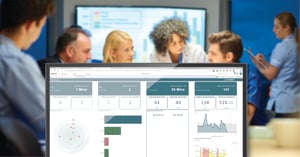
WELCOME TO THE ATHENA COMMAND CENTRE
Improve patient care quality and achieve over 86% predictive modelling rates by harnessing the power of AI and data analytics with the Athena Command Centre.
The Athena Command Centre Solution
The Athena Command Centre presents a comprehensive solution by furnishing multi-disciplinary hospital flow teams with decision-ready data. This platform offers real-time insights into the hospital's operational status, effectively pinpointing areas of pressure and bottlenecks. Additionally, it meticulously measures 80 key performance areas of Urgent and Emergency Care Patient Flow, encompassing all the established NHS England OPEL parameters.
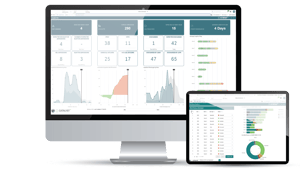
Use of AI to predict patients at risk
The Command Centre incorporates predictive modelling to identify patients at risk of admission or delays, enabling early intervention. Accessible via web and mobile devices, it empowers consultants, managers, and staff to enhance patient experiences and improve efficiency. Notable results include reduced emergency department wait times, bed boarding, and delayed discharges.
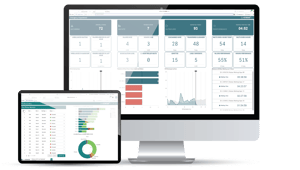
From Ambulance To Discharge With Athena Command Centre Integration
- All
- Ambulance
- Emergency Department
- Inpatient
- Bed Status
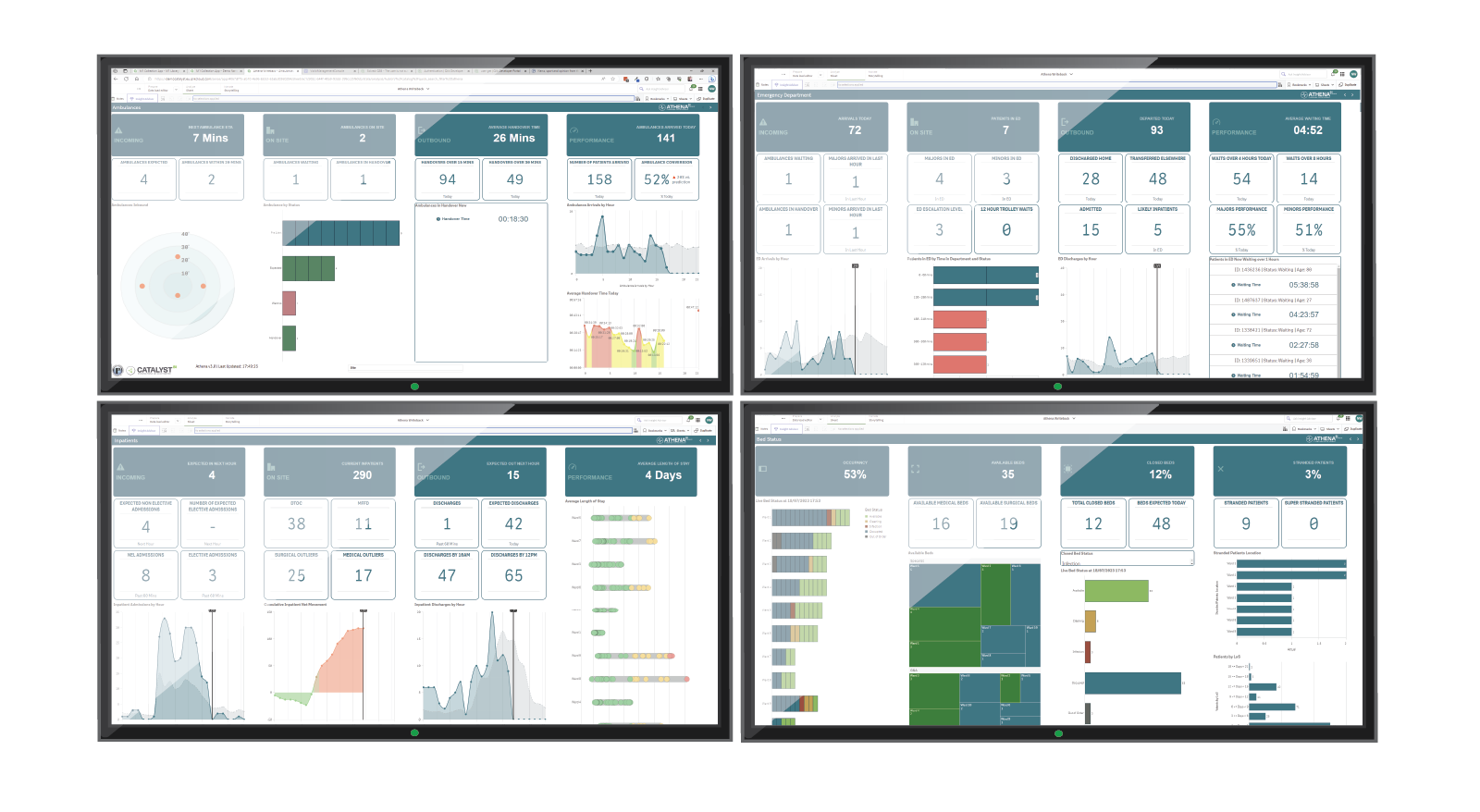
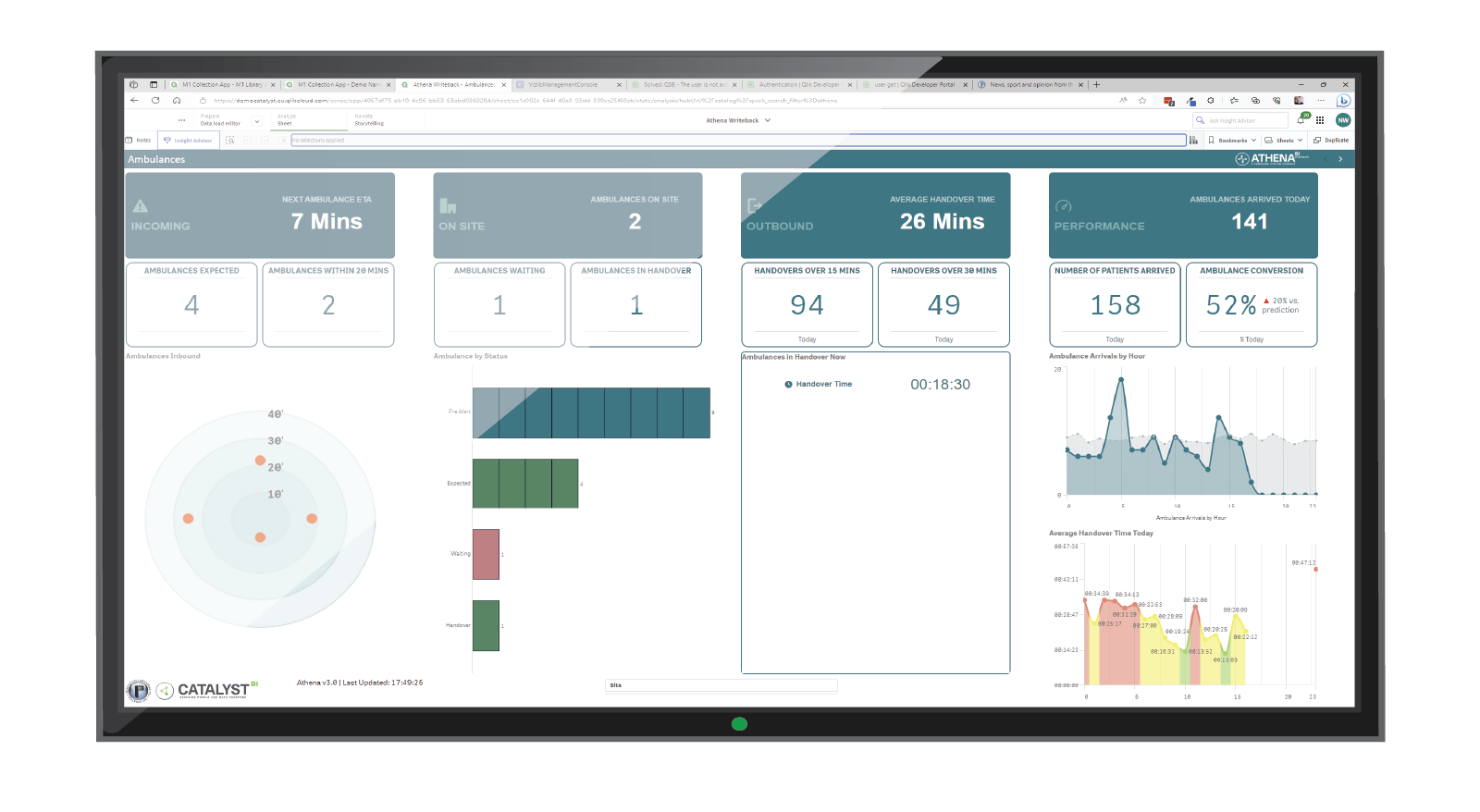
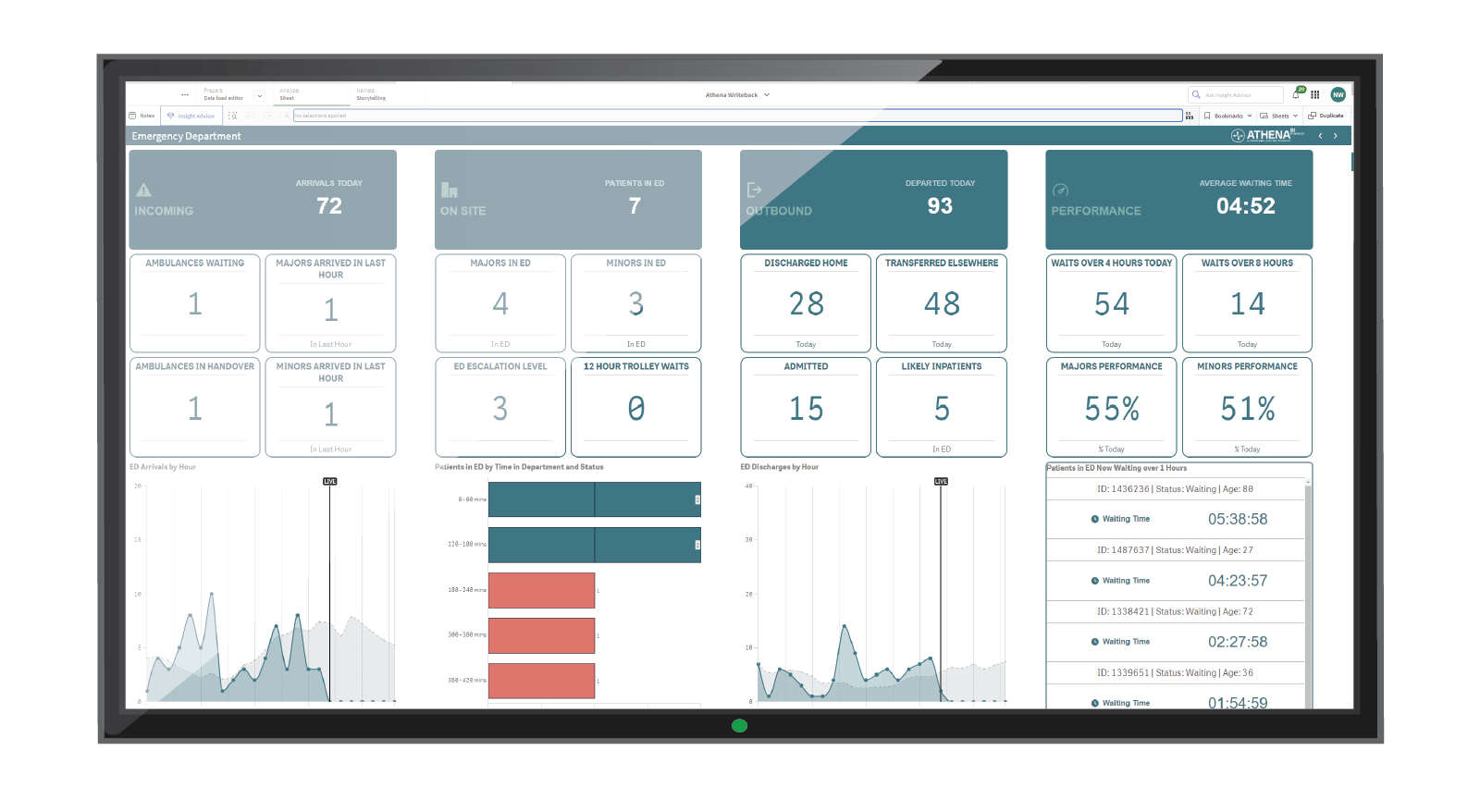
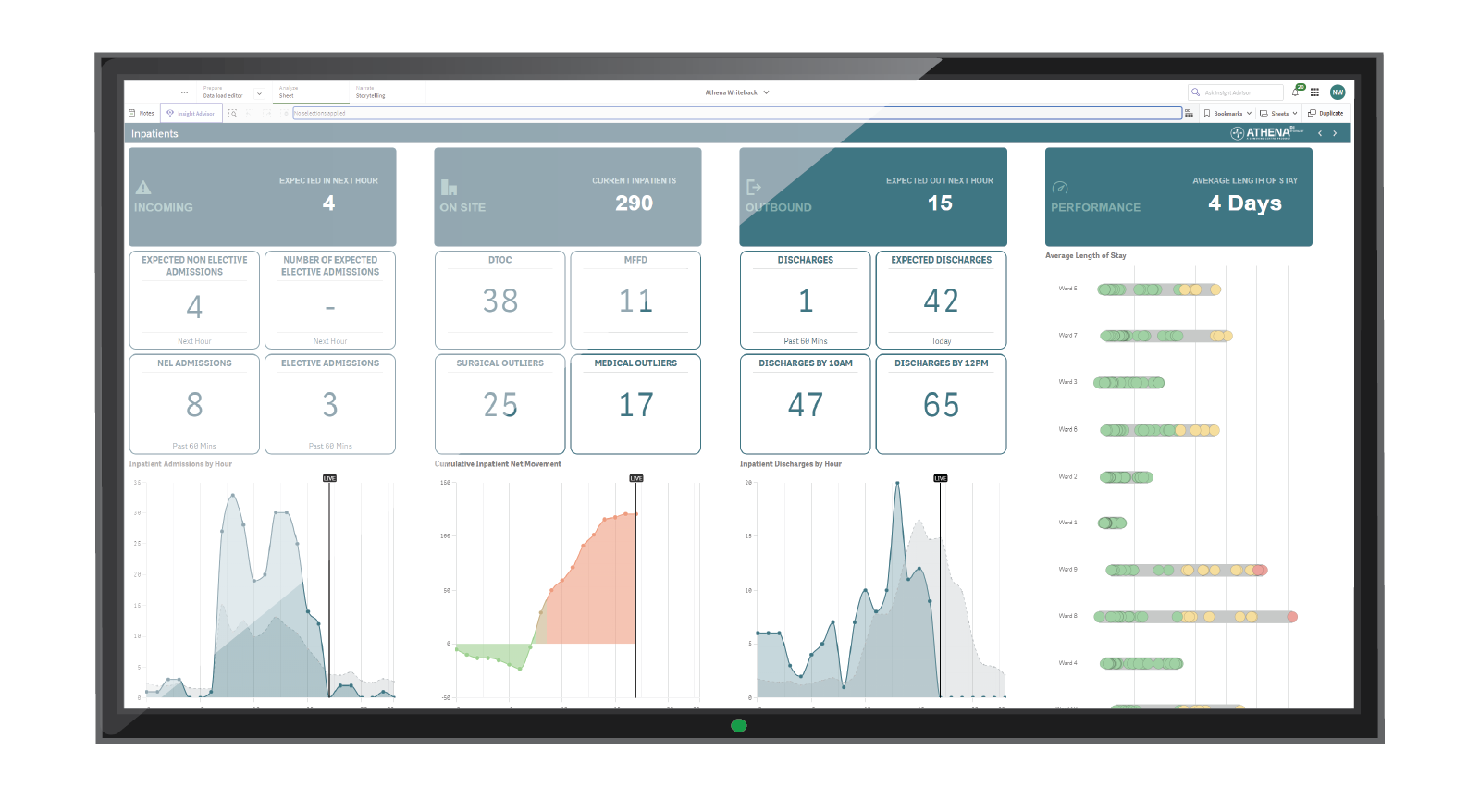
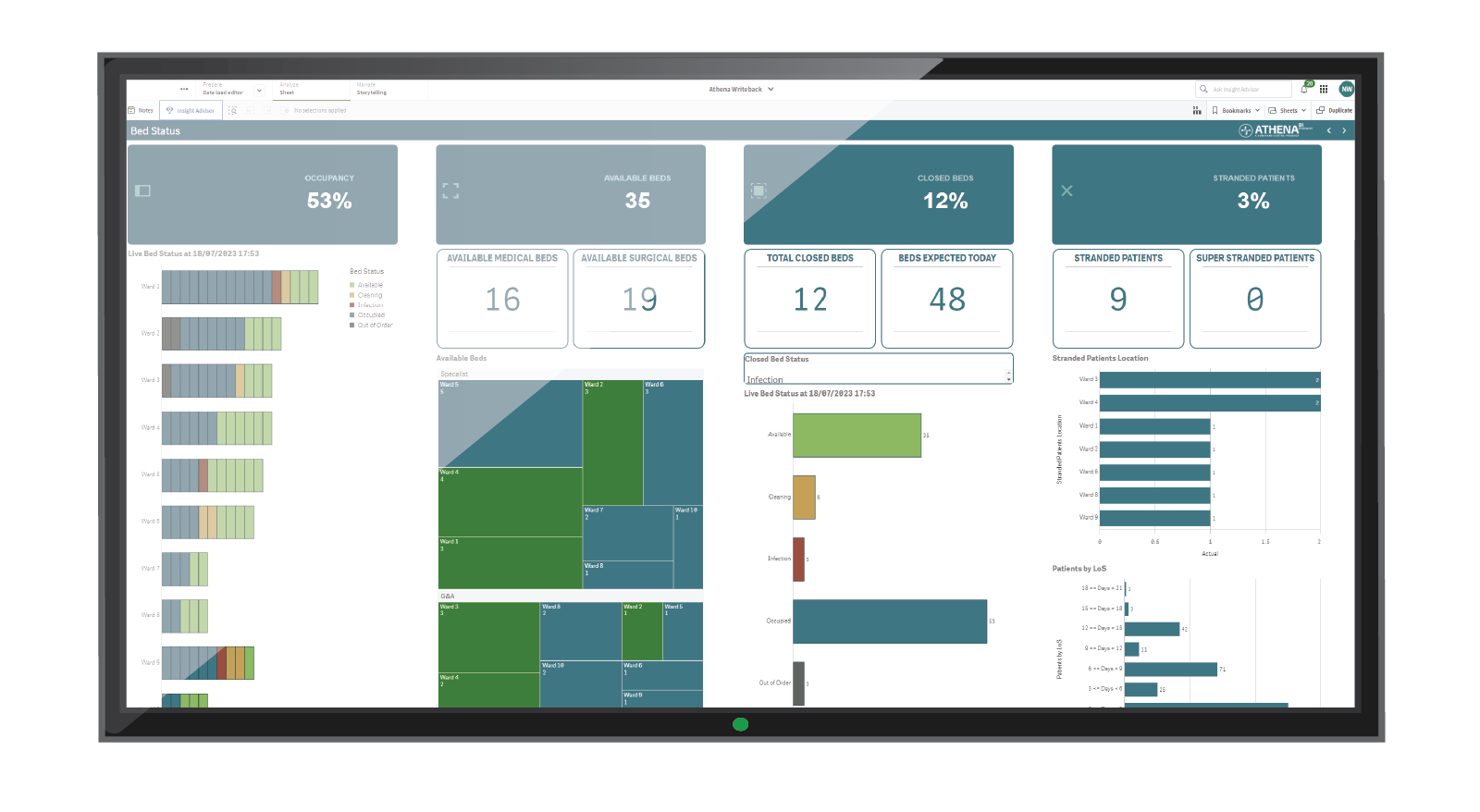
Athena Command Centre Success
"As a senior clinician focused on capacity and flow on a daily basis but also in a strategic context, the command centre concept is an invaluable tool. As a senior clinician focused on capacity and flow on a daily basis but also in a strategic context, the command centre concept is an invaluable tool."
"The analytics are designed to be really intuitive. The clinicians have the ability within any of the analytical objects to drill down to a patient record level, which is a really important requirement."
Benefits of Athena Command Centre




Up to 86% efficiency in predicting bed needs upon arrival




Efficient allocation of beds, saving time for clinical rounds
How NHS Tayside were able to tackle COVID-19 Planning head
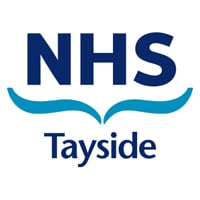
How NHS Tayside were able to tackle COVID-19 Planning head on, providing rapid analysis for flow coordinators making on-the-ground decisions and enabling them to monitor the situation and deploy staff effectively.
"Obviously you consider doing things in-house, as we have skilled developers and have built many dashboards over the years, but these things all take time and you have to be able to think out of the box. Once we looked at everything, we estimated that the project would take six to nine months to complete and we wouldn’t have achieved the same end result. So, we got the experts in to build it with us. Catalyst BI showed us what was possible."
Implementing an analytical Command Centre at University of Morecambe Bay NHS Foundation Trust
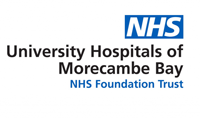
Without live, up-to-date information it was difficult to spot themes that were causing delays in patient discharge. Similarly, it was hard to detect surges in walk-in patients or delays with ambulances. There were also challenges around having an holistic view of the current bed state across the Trust.
With Command Centre UHMBT now holds patient flow meetings every two hours, driven by information provided by the Command Centre. With that they are able to improve patient safety, patient flow and the overall effectiveness of the service they offer to patients.
“We’ve co-designed the solution with our clinical and operational colleagues and feedback tells us we’ve got a solution that’s making a positive impact to patient care.
Across the Trust one hundred hours are saved every day. This has meant the solution paid for itself in one month. In addition, by equipping ward managers with live,accurate data, patients being cared for in non-medical wards has dropped to 2%”
Rob O'Neill | Head of Information


